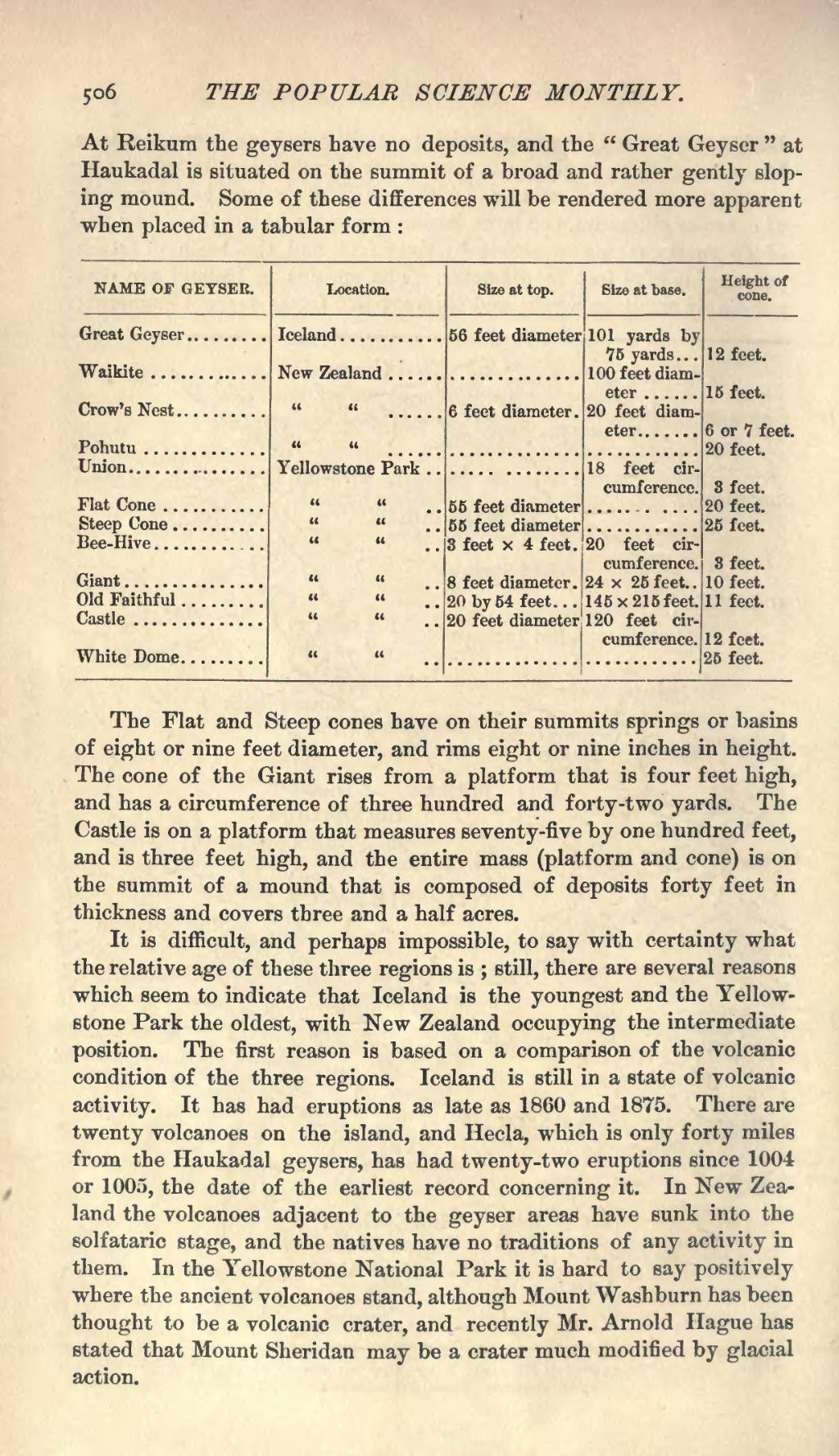At Reikum the geysers have no deposits, and the "Great Geyser" at Haukadal is situated on the summit of a broad and rather gently sloping mound. Some of these differences will be rendered more apparent when placed in a tabular form:
| NAME OF GEYSER. | Location. | Size at top. | Size at base. | Height of cone. |
| Great Geyser | Iceland | 56 feet diameter | 101 yards by 75 yards | 12 feet. |
| Waikite | New Zealand | 100 feet diameter | 15 feet. | |
| Crow's Nest | "" | 6 feet diameter. | 20 feet diameter | 6 or 7 feet. |
| Pohutu | "" | 20 feet. | ||
| Union | Yellowstone National Park |
18 feet circumference. | 3 feet. | |
| Flat Cone | "" | 55 feet diameter | 20 feet. | |
| Steep Cone | "" | 55 feet diameter | 25 feet. | |
| Bee-Hive | "" | 3 feet x 4 feet. | 20 feet circumference. | 3 feet. |
| Giant | "" | 8 feet diameter. | 24 x 25 feet | 10 feet. |
| Old Faithful | "" | 20 by 54 feet | 145 x 215 feet. | 11 feet. |
| Castle | "" | 20 feet diameter | 120 feet circumference. | 12 feet. |
| White Dome | "" | 25 feet. |
The Flat and Steep cones have on their summits springs or basins of eight or nine feet diameter, and rims eight or nine inches in height. The cone of the Giant rises from a platform that is four feet high, and has a circumference of three hundred and forty-two yards. The Castle is on a platform that measures seventy-five by one hundred feet, and is three feet high, and the entire mass (platform and cone) is on the summit of a mound that is composed of deposits forty feet in thickness and covers three and a half acres.
It is difficult, and perhaps impossible, to say with certainty what the relative age of these three regions is; still, there are several reasons which seem to indicate that Iceland is the youngest and the Yellowstone Park the oldest, with New Zealand occupying the intermediate position. The first reason is based on a comparison of the volcanic condition of the three regions. Iceland is still in a state of volcanic activity. It has had eruptions as late as 1860 and 1875. There are twenty volcanoes on the island, and Hecla, which is only forty miles from the Haukadal geysers, has had twenty-two eruptions since 1004 or 1005, the date of the earliest record concerning it. In New Zealand the volcanoes adjacent to the geyser areas have sunk into the solfataric stage, and the natives have no traditions of any activity in them. In the Yellowstone National Park it is hard to say positively where the ancient volcanoes stand, although Mount Washburn has been thought to be a volcanic crater, and recently Mr. Arnold Hague has stated that Mount Sheridan may be a crater much modified by glacial action.

